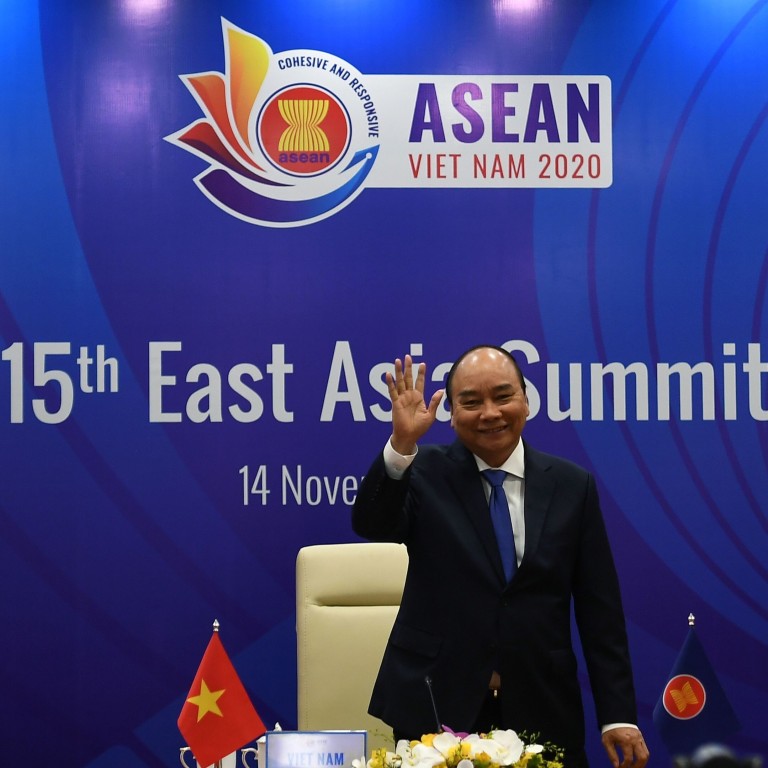
Asia-Pacific nations prepare to sign world’s biggest free-trade deal at virtual summit
- Regional Comprehensive Economic Partnership (RCEP) covers 29 per cent of global economic output
- Once in place, RCEP will reduce tariffs, set common trade rules and facilitate supply chains
Asia-Pacific nations are set to sign on Sunday the world’s biggest free-trade agreement at a virtual summit hosted in Hanoi, Vietnamese Prime Minister Nguyen Xuan Phuc said.
“The signing of the regional comprehensive economic partnership tomorrow is a concrete action that shows the determination to cooperate and integrate in the region,” Phuc told regional leaders and businessmen at an Association of Southeast Asian Nations (Asean) meeting on Saturday.
The Regional Comprehensive Economic Partnership (RCEP) covers 2.2 billion people and 29 per cent of global economic output. Having been negotiated since 2013, it is expected to be signed during an online ceremony on Sunday at the 37th Asean Summit in Hanoi.
The world’s biggest trade agreement will include 10 Asean member states – Vietnam, Thailand, the Philippines, Laos, Cambodia, Myanmar, Malaysia, Singapore, Indonesia and Brunei – along with Australia, China, Japan, New Zealand and South Korea.
Before finalising the agreement, 31 rounds of negotiations and 18 ministerial meetings took place, while self-imposed deadlines for the deal were missed on six occasions.
Previously, the agreement hinged on India, yet New Delhi remained reluctant to open up Indian markets as much as the deal proposed. Once India withdrew from negotiations at the end of 2019, the path forward for the trade agreement cleared.
Once in place, RCEP will reduce tariffs, set common trade rules and facilitate supply chains. The trade agreement will cover everything from trade, services, investment, e-commerce, telecommunications and copyright.
Asean leaders have said they still intend to expand trade with India despite the country leaving RCEP.

